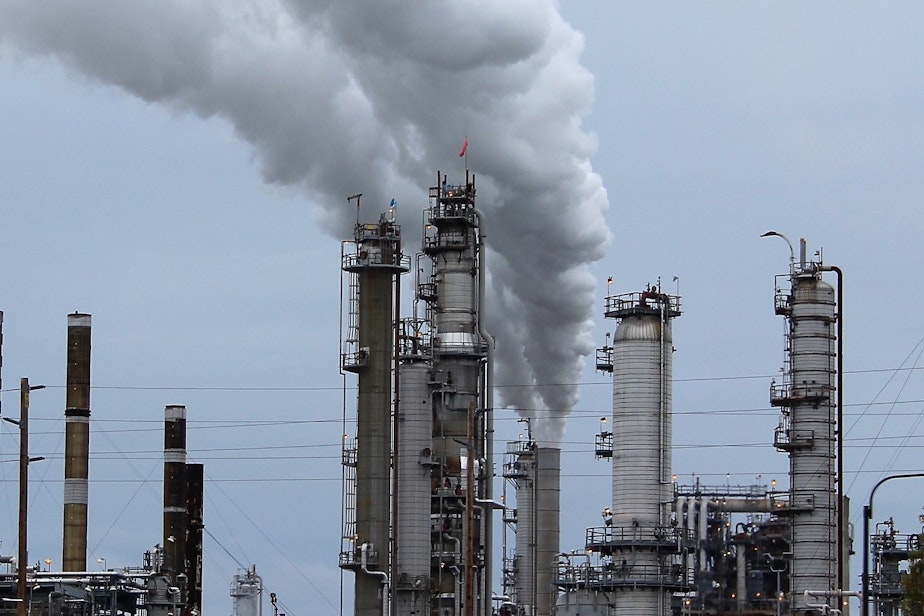Tax polluters says the UN — but much more than WA carbon fee

It’s not too late to prevent climate catastrophe -- if the world takes dramatic action, according to a new report from the United Nations.
The report also highlights a type of action Washington state will vote on this fall: carbon taxes.
A press release from the United Nations’ Intergovernmental Panel on Climate Change, the world's leading body of climate scientists, said “the next few years are probably the most important in human history.”
Its latest scientific report on the world’s rapidly changing climate found that catastrophic impacts could hit just 20 years from now, much sooner than earlier projections, with hundreds of millions of people forced from their homes by drought, flooding or extreme heat.
The new IPCC report said a cost-effective way to fend off climate disaster is to make polluting a lot more expensive.
A measure on this November’s ballot aims to start Washington state down that path. Initiative 1631 would add about 13 cents to the cost of a gallon of gasoline and charge similar fees on other fossil fuels.
While other nations and the neighboring province of British Columbia have taxed carbon, the Washington state fee on carbon pollution would essentially be America's first carbon tax.
Backers of the measure insist it’s a “fee,” not a “tax,” since the money would go to solve problems caused by carbon pollution, not to state coffers in general. Then again, the state’s 0.7 percent tax on hazardous substances has been funding hazardous-waste cleanups since voters approved it in 1988, so taxes sometimes are designed and put to specific environmental purposes.
The proposed carbon fee would go up about 2 cents a gallon annually. It would gradually double over about 8 years, depending on inflation.
“Carbon pricing, direct regulation and public investment to enable innovation are critical for deep decarbonisation pathways,” the IPCC report states.
Economists say much steeper carbon prices than Washington voters or governments elsewhere are considering would be needed to avoid disastrous heat, flooding and other impacts in coming decades.
We're talking dollars, not cents, per gallon.
“The policies are lagging very, very far -- miles, miles, miles -- behind the science and what needs to be done,” Yale University economist William Nordhaus said Monday in an interview with the Nobel Prize committee. “It’s hard to be optimistic.”
Nordhaus was awarded a Nobel Prize in economics Monday for showing that “the most efficient remedy for problems caused by greenhouse gases is a global scheme of universally imposed carbon taxes.”
$7.74 on a gallon of gas
Economists have a hard time predicting how markets behave in the long term, but different economic models studied by the IPCC found that carbon prices, through taxes or other mechanisms, would have to rise to $135 to $5,500 per metric ton by 2030 to get the world on a path to eliminating carbon emissions by 2050.
The median value of a carbon tax found necessary to keep warming to 1.5 degrees Celsius was $880 per ton in 2030, or about $7.74 on a gallon of gasoline.
Washington’s carbon fee would, depending on inflation, rise to about $35 a ton (or 31 cents a gallon of gasoline) in 2030.
The oil-industry opponents of the ballot measure say it’s unfair, since it lets many big polluters -- but not the state’s oil refineries -- off the hook.
Ships, airplanes and Boeing, among others, won’t have to pay to pollute.
The oil industry has funded 98 percent of the No on 1631 campaign’s $21 million war chest to date, with multimillion-dollar contributions from Phillips 66, BP and Andeavor. The Yes campaign has raised $8 million, with billionaires Bill Gates and Michael Bloomberg pledging to make major contributions in the campaign’s final weeks.




